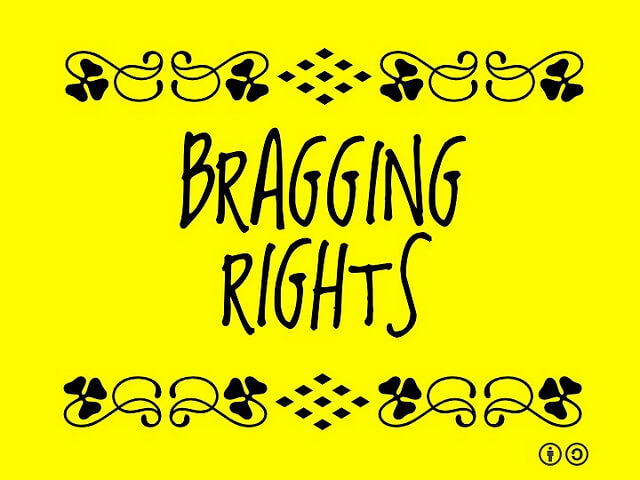Did you know that Mitt Romney was an English major, and that Peter Thiel, co-founder and CEO of PayPal, was a philosophy major? They prove that contrary to the popular belief, you don’t have to teach just because you have a humanities degree. Plenty of students with a humanities degree have successfully cleft a path in non-humanities tracks.
Here are six tips to get the career you want with your humanities degree.
1. Write killer cover letters and personal statements

Unsurprisingly, many consider writing to be the most transferrable skill you learn when earning your humanities degree. “I think humanities majors are really beneficial when it comes to the writing skills you gain; you’d be surprised at how many people don’t know how to write properly when you enter the working world,” Eder Abellaneda, a second-year graduate student at the UCLA Fielding School of Public Health, said. Furnish the experience sections of your resume with compelling descriptions and tell your tale in your cover letter as if you’re the most interesting character the recruiter will ever read about. After graduating with majors in history and political science, Abellenada fell in love with community service while in AmeriCorps and decided to further his education in public health. “I was able to get into all the graduate schools I applied to because of my personal essays,” Abellaneda said. You know what the larger significance English professors badger you for in your papers really means? Better professional writing and job security.
2. Take supplements

No, not vitamins, but classes related to whatever career field you set your eyes on. As a UCLA psychobiology major and English minor about to enter med school, senior Michelle Yeghyayan recommends science classes or science minors if you’re getting a humanities degree and considering med schools. “My friends who are English majors will do a post-bac program (an intensive science program between college and med school) before going to med schools,” Yeghyayan said. Check out online classes and your school’s continuing education programs as well.
3. Search your soul with internships

The only way to find out if you’re love or hate postmodern art is to take that art history class. Likewise, you won’t know if your career choice will fit snuggly until you try on an internship. Jill Flickinger, a former American literature and culture and history major, secured a job after brand management and business school through a series of internships and jobs. Starting as an intern at Fox Studios, Flickinger is now a brand management intern at Little Tikes and an MBA student. “I’ve always been working under the typical business, admin environment, but at some point I knew I needed a better foundation and skills directly related to marketing,” Flickinger, a third year MBA student at the UCLA Anderson School of Management, said. Internships are the muggle equivalent of the Hogwarts sorting hat in that will help you figure out the dream job you can get with a humanities degree.
4. Flaunt what they want

If you have or are getting a humanities degree, you’ve cross-analyzed and double-checked your own writing to make sure it’s what your prof wants, so do the same for your resume. Your major isn’t obviously related to your dream job, but you want to embellish your skills and your major coursework in a way that’s tailored to the job description. “Really think about what you want to do, what you’ve done and what they’re looking for and drawing the lines between them,” Flickinger said. “Find postings online and check out what they’re looking for and put that onto your resume.” Here’s how Abellaneda relates his history major to public health: “With history, it was helpful when it came to understanding my community, its history and the reason behind why things are the way they are, and communicating with my fellow neighbors.” Approach your cover letter or interview as a formal analysis of your major, and make sure your analysis makes sense to the recruiter.
5. Rock your group projects

Let’s take a minute here and pray thanks to that gruesome final group presentation. you’ll be surprised at how much kicking ass at those group projects benefit your future. “When you get out into the working world you have to collaborate with other people,” Abellaneda said. “Learning how to do group work is usually important in the working world ’cause you do have to navigate other’s strength and weaknesses and be able to use your strengths.” Collaboration skills are a prereq for virtually any job. Practice working with others and convince the recruiter to hire you in the most graphic way possible.
6. Get a mentor

Even if you’re a wizard with search engine and you think job search websites have all the information you need, the truth is, Google will never get as intimate with you as a real mentor can. It’s not enough to simply turn yourself into a Xerox machine tirelessly printing out bedazzled resumes and cover letters. You need a seasoned veteran in your field of interest to show you how to customize your career to your humanities background. “Yes, your resumes and cover letters are still important, but networking and getting a mentor is something that we’re gonna see as more and more important,” Flickinger said. Think of getting a mentor as asking someone out to dinner—you want to come across as someone who gets them. “That’s usually how mentorships start: you have a mutual interest to something or a personal connection before you ask that person to be your mentor,” Flickinger said. Then your mentor will be there for all the good, bad and ugly of your journey to getting a career with a humanities degree.



















